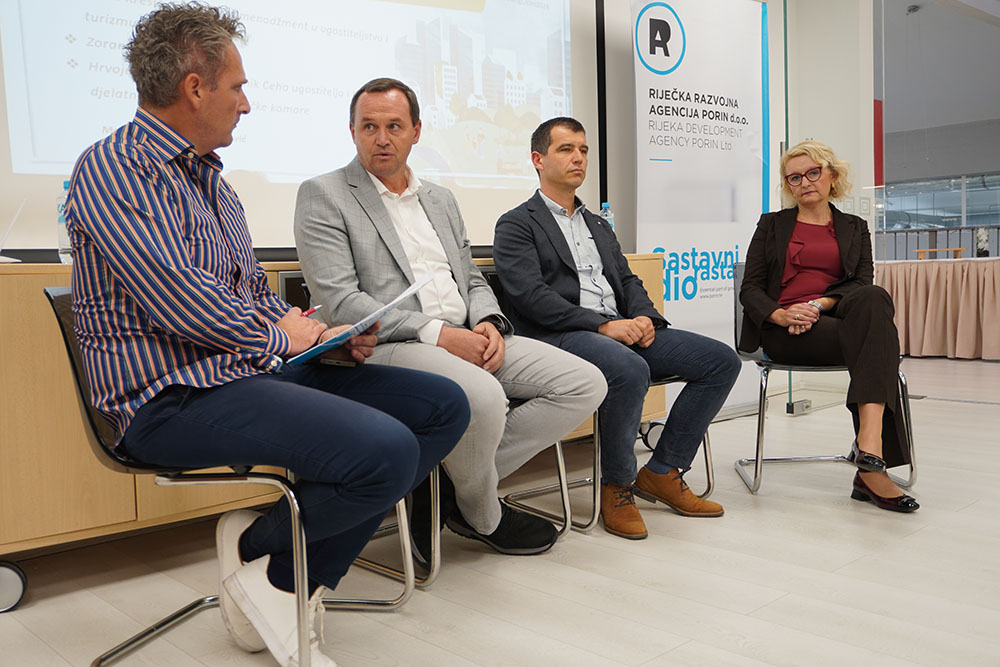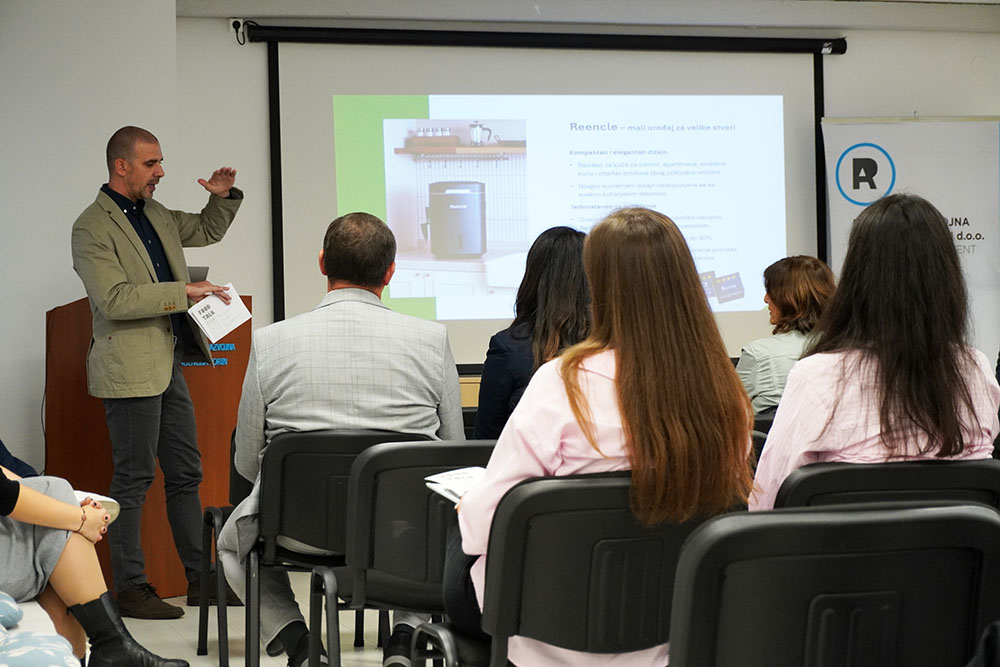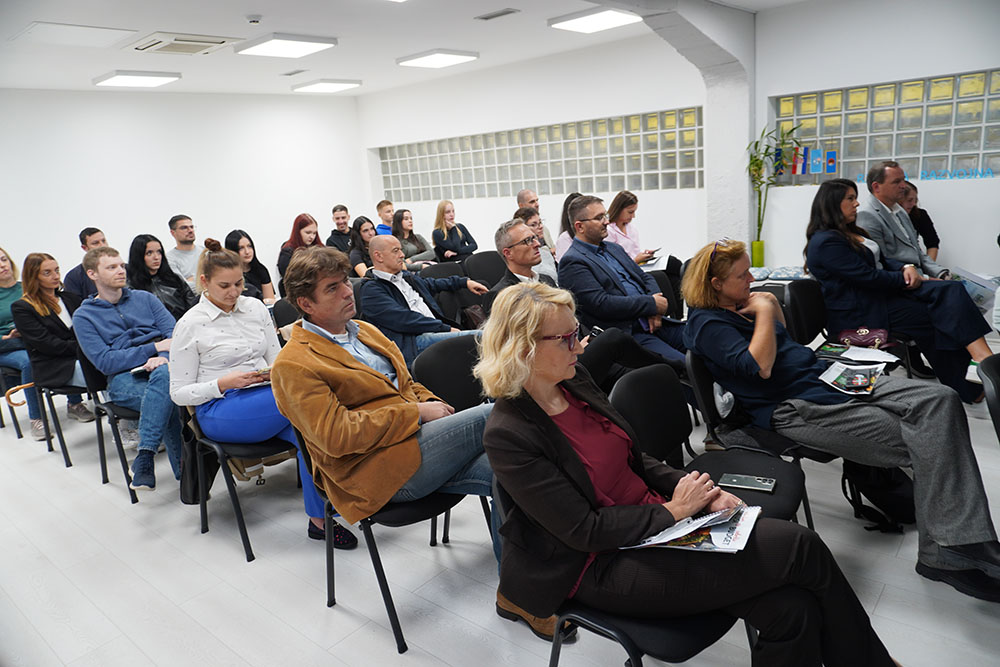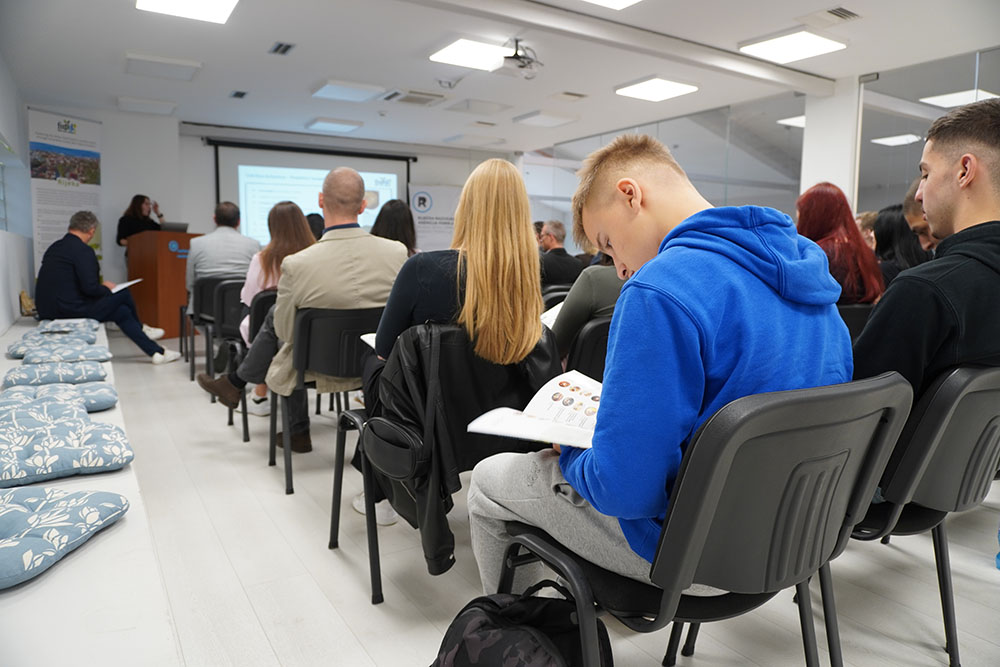As part of the EU FUSILLI project, the Fusilli Food Talk event was held on Friday, October 11, at the Rijeka Development Agency Porin, gathering experts and participants from various sectors to discuss challenges and solutions in the transition to more sustainable food systems. The project’s goal is to overcome obstacles in creating and implementing integrated food policies that support sustainable practices in urban, suburban, and rural areas.
The event opened with Suzana Belošević Romac, Senior Advisor for European Projects, who highlighted the importance of Rijeka’s Living Lab within the project, one of 12 labs across Europe, including cities such as Oslo, Rome, Turin, and Athens. A major point was Rijeka’s planned participation in the Milan Urban Food Policy Pact (MUFPP), a global initiative joined by more than 200 cities with the aim of developing sustainable and inclusive food systems.
Attendees had the opportunity to learn more about this initiative from special guest Andrea Patrucco from the City of Milan, who joined online to present MUFPP activities, results, and core principles. Additionally, Associate Professor Dr. Sarah Czerny from the Faculty of Humanities and Social Sciences in Rijeka presented findings on the dietary habits of Rijeka’s citizens and the issue of food waste.

Panel discussion – From left to right: Nenad Antolović, Hrvoje Margan, Zoran Delić, Greta Krešić
The panel discussion brought together experts such as Greta Krešić from the Faculty of Tourism and Hospitality Management, Hrvoje Margan, president of the Guild of Restaurateurs and Tourist Workers of the Croatian Chamber of Trades and Crafts, and consultant Zoran Delić. Participants discussed the role of education, industrial innovation, and practical solutions for reducing food waste, with a particular focus on opportunities in hospitality and the local community.
The audience included students from the Opatija School of Hospitality and Tourism, underscoring the event’s commitment to educating future professionals and inspiring new generations to embrace sustainable practices.
The event concluded with commitments to further enhance sustainable practices in Rijeka, with a focus on technological solutions and education to ensure the lasting impact of the FUSILLI project at the local level.

Marko Radeljak from Zelen Technologies

Audience at the FUSILLI Food Talk
The event also introduced the innovative Food Waste Analyzer app, developed by the City of Rijeka as part of Fusilli project activities. This digital platform provides specific tools and advice for better waste management, supporting both the hospitality sector and households in more efficiently managing food waste.
Marko Radeljak from Zelen Technologies presented several innovative waste management solutions, including industrial composters designed for the hospitality sector to enable efficient organic waste processing. He also introduced a small household composter, designed to help households reduce waste and, consequently, municipal waste management costs. These composters provide users the opportunity to convert organic waste into fertilizer, thereby reducing their environmental impact.
Particular interest was sparked by Zoran Delić’s presentation on the Zero Waste in Hospitality concept. Delić, a consultant, emphasized that the zero-waste approach in gastronomy focuses on waste reduction from the earliest stages of meal planning and ingredient sourcing, to maximizing usage. He highlighted the importance of reducing portion sizes, using seasonal and local products, and transparency in sourcing and food preparation. Delić also presented the zero-waste hierarchy, which includes redesigning business models, reducing the ecological footprint, and reusing materials.

Author: Emira Brkić Karninčić, Rijeka Living Lab
Photo Credits: Municipality of Rijeka